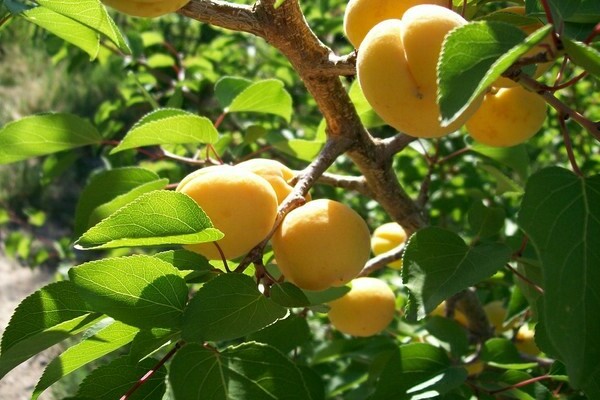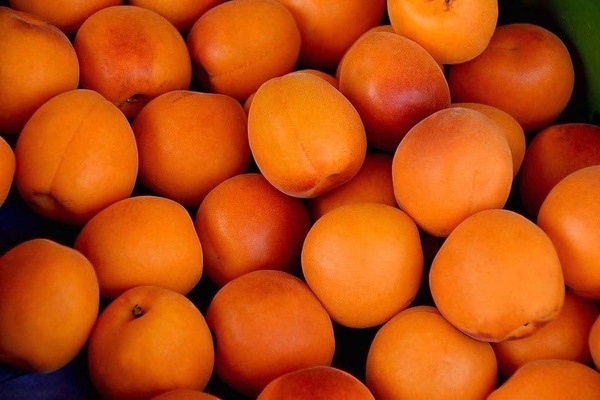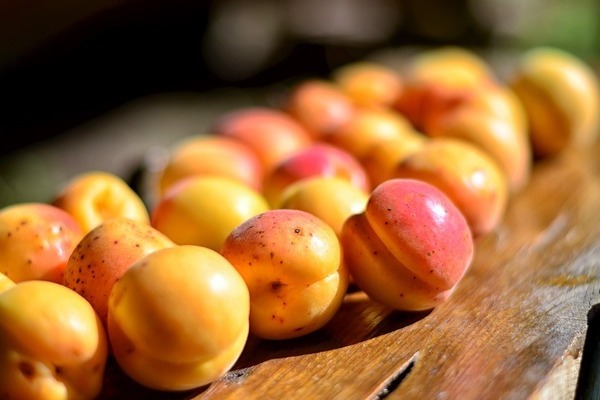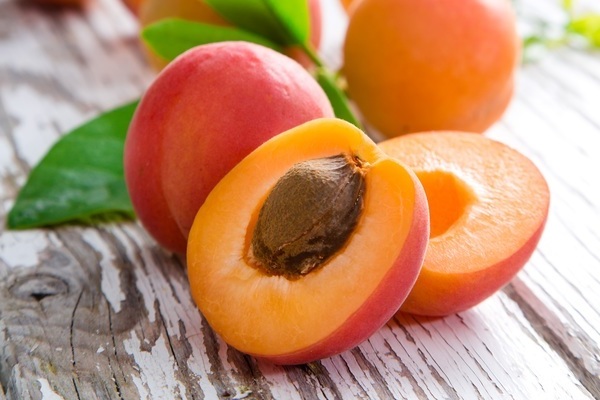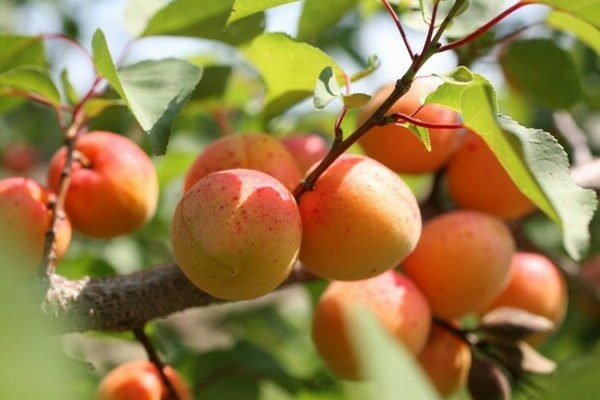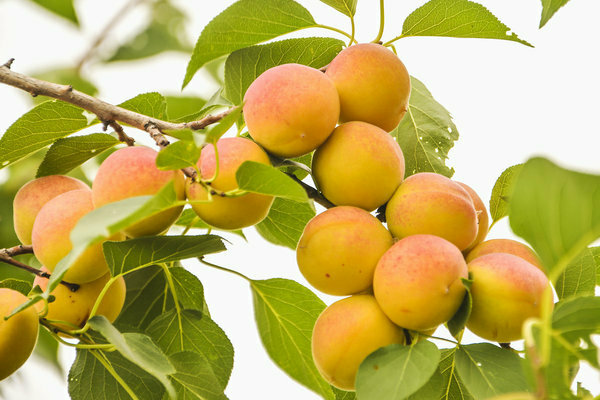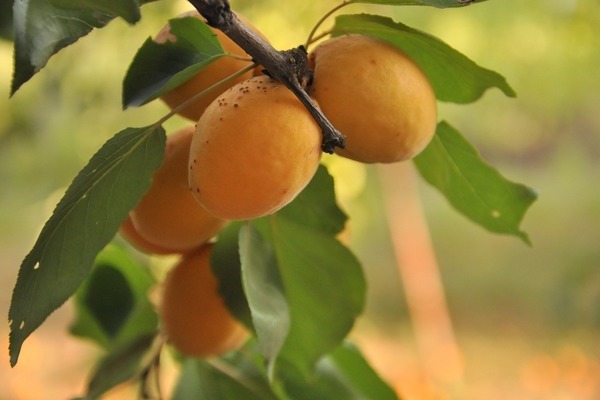Apricot: description, fruits of apricots, their value and contraindications
Content:
In this article, we will give the most complete information about such a fruit crop as apricot.
Apricot description
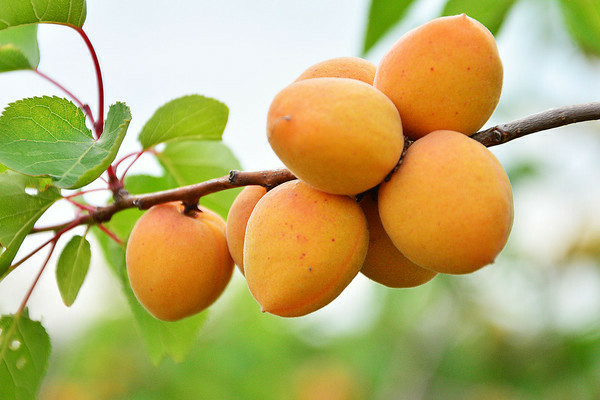
Apricot is a woody plant that belongs to the Rosaceae family. Apricot is a frequent visitor to many garden and summer cottages, so you need to know the most basic information about this culture, as well as about the peculiarities of its growth. It is worth emphasizing that the apricot is one of the closest relatives of the home plum. China is considered the birthplace of apricot. But, thanks to gardeners, breeders and agronomists, today we have many varieties that can be grown without problems in the most different latitudes of our country.
On the territory of Russia, apricot has a huge variety of names. For example, yellow-leaf (due to its close relationship with plum), morel, dried apricots (although this is usually called dried apricots), perches or apricots. The names depend mainly on the characteristics of the territory in which the dried apricots grow.
As a rule, the tree can reach a height of 8 meters, has a rounded crown, which blooms with fragrant flowers, which marks the imminent fruit setting. The bark has a gray-brown hue; deep cracks can be seen on old trees. Experienced gardeners recommend to close them up immediately, since parasites and microorganisms can grow at the depth of the crack, which will cause tree diseases.
Apricot fruits and their value
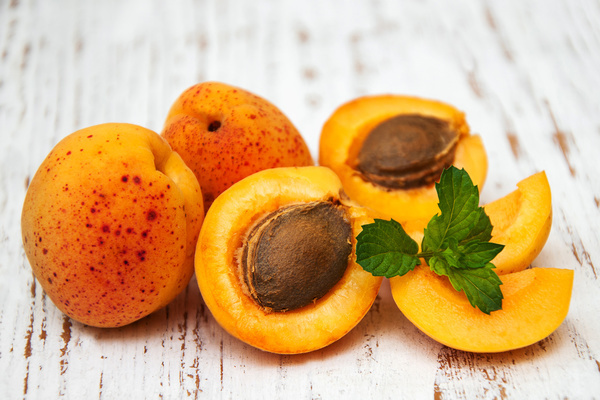
Apricot fruits have a unique appearance, so it is quite difficult to confuse them with any other plant. From a biological point of view, an apricot fruit is a juicy pulp of yellow or reddish color, inside which there is a large stone in the shape of apricots, which can be round or elongated, the poles of the apricot fruit are connected to each other due to a longitudinal groove. Kozhich is pleasant to the touch, because it has a slight velvety pubescence.
The pulp can have different tastes, it all depends on which variety was selected for cultivation. But, as a rule, apricots, when fully ripe, are sweet and juicy. They can be consumed immediately after harvest, and quite often they make jam or compotes from apricots, freeze them for the winter, add them to fruit salads or baked goods.
The weight of one fruit can vary from 3 to 18 grams, it all depends solely on the apricot variety. there are varieties where one fruit can weigh almost 80 grams, and this, you see, is a very high and worthy indicator. of course, such results can be achieved solely due to the fact that the gardener invests a large amount of his time and physical strength in caring for the plant, especially if these are whimsical varieties that require special attention.
If you create all the conditions, then the apricot tree will become the most real long-liver on the site among all other fruit fruit trees. In warm climates that are comfortable for apricots, they can bear fruit for nearly 100 years. As for the qualities of an apricot, it can tolerate minor frosts: its flower buds can begin to freeze if the temperature drops below 20 degrees Celsius.
If the gardener has made his choice in favor of especially frost-resistant varieties of apricots, then they can withstand frosts below -30 degrees, but, again, you should pay attention to the fact that in some cases you should still create additional opportunities to protect the plant, otherwise in one of the moments without this, the plant will become especially susceptible to disease or disease, and may die.
Apricot fruits are highly valued not only due to the fact that they are easy to store and transport (and this applies to most varieties of apricots), but also due to the fact that apricots contain a very large number of useful components in their pulp.In particular, you should pay attention to the mineral components that are contained in the pulp of apricot: these are potassium, sodium, phosphorus and iron, as well as iodine and magnesium. In fact, if you make calculations, it is easy to understand that apricot is in first place among all other fruits in terms of the content of carotene, boron and manganese, which noticeably distinguishes apricots from other fruit and berry crops.
Apricot fruits have a positive effect on patients who complain of malaise in areas such as the cardiovascular system, kidneys, and the nervous system. Also, apricots can be used for anemia, since they have a lot of iron, and it allows you to replenish anemia, low hemoglobin levels and restore a person's condition with heavy blood loss.
Apricots are a storehouse of iodine, therefore they are recommended for people who have abnormalities in the functioning of the thyroid gland. In addition, they have a positive effect on metabolism, improve and accelerate metabolic processes. If apricots are consumed in large quantities, then usually a person does not get better.
Below we present a list (far from complete) of diseases in which it is extremely useful to consume apricot, taking into account all the components that are contained in its pulp:
- anemia;
- vitamin deficiency;
- constipation and gastrointestinal disorders;
- obesity;
- hypertension;
- oncological and hematological diseases;
- edema, diseases of the renal system, renal failure;
- weakening of memory, impaired concentration, lack of stable pressure, disorientation.
Apricot contraindications
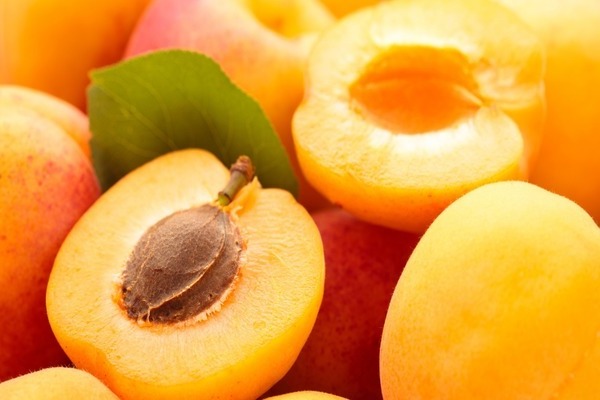
Of course, along with the positive aspects, there are also contraindications. You should adhere to some restrictions in the use of apricot fruits, so as not to harm your own body even more. As a rule, first of all, they pay attention to the fact that there is a lot of sugar in apricot fruits, so they need to be consumed in reasonable quantities for people who suffer from diabetes mellitus.
If you eat too many apricots, it can lead to disruption of the stomach and intestines, and digestive upset in general. Its likelihood increases markedly if you eat a large amount of apricots on an empty stomach, as well as after eating heavy and hard-to-digest foods.
In addition, apricots should be used very carefully by persons who have chronic diseases of the gastrointestinal tract - ulcers, gastritis, pancreatitis, diseases of the duodenum, irritable bowel syndrome.
Thus, in general, apricots are extremely healthy fruits that are very popular with both adults and children. The selection of a variety must be made, first of all, focusing on the location in which the tree will grow, how much the gardener himself is able to provide the tree with regular care, and what kind of harvest he wants to get as a result. If you follow all the conditions for watering, feeding, pruning, lighting, then you can get a decent harvest in 2-3 years after planting a tree in a garden plot. Of course, it is important to focus on personal capabilities, as well as the instructions that come with the garden trees themselves.
Photos of apricots
- Photos of apricots


